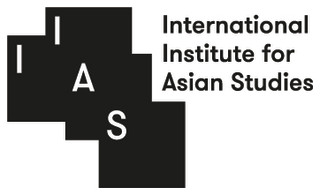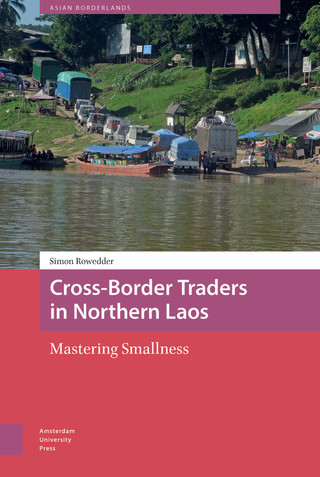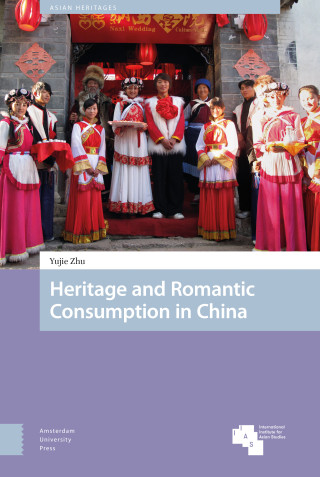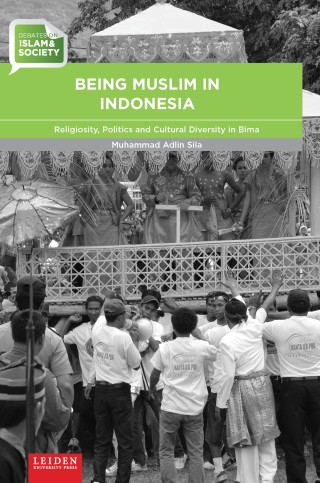

- Titel
- Indigenous Heritage and Identity of the Last Elephant Catchers in Northeast Thailand
- Auteur
- Alisa Santikarn
- Prijs
- € 129,00 excl. BTW
- ISBN
- 9789048561995
- Uitvoering
- Hardback
- Aantal pagina's
- 258
- Taal
- Engels
- Publicatiedatum
- 25 - 02 - 2025
- Afmetingen
- 15.6 x 23.4 cm
- Serie
- Asian Heritages
- Partner

- Categorieën
- Anthropology
- Contemporary History
- Contemporary Society
- Heritage and Memory Studies
- Modern History
- South East Asia
- Sociology and Social History
- Discipline
- Aziëstudies
- Ook beschikbaar als
- eBook PDF - € 0,00
Acknowledgements
A Note on Transliteration and Thai Naming Conventions
List of Abbreviations
List of Illustrations
Preface
1. Introduction
2. Heritage, Authority, and the Anthropocene
3. Formation of Attitudes Towards Indigenous and Ethnic Minority Communities in Thailand—from the Colonial Period to the Cold War
4. Constructing the Authorised Environmental Discourse: Territorialisation and Indigeneity in Thailand
5. Thailand’s Authorised Heritage Discourse: Identity, Nationalism and ‘Good Culture’
6. The Kui in Thailand: Identity, (In)Visibility, and (Mis)Recognition
7. The Last Elephant Catchers: Cultural Endangerment and the Loss of Knowledge
8. New Spaces for the Enactment of Kui Culture: Heritagisation and (Re)Invented Traditions
9. Conclusion
Bibliography
Glossary
Bibliography
A Note on Transliteration and Thai Naming Conventions
List of Abbreviations
List of Illustrations
Preface
1. Introduction
2. Heritage, Authority, and the Anthropocene
3. Formation of Attitudes Towards Indigenous and Ethnic Minority Communities in Thailand—from the Colonial Period to the Cold War
4. Constructing the Authorised Environmental Discourse: Territorialisation and Indigeneity in Thailand
5. Thailand’s Authorised Heritage Discourse: Identity, Nationalism and ‘Good Culture’
6. The Kui in Thailand: Identity, (In)Visibility, and (Mis)Recognition
7. The Last Elephant Catchers: Cultural Endangerment and the Loss of Knowledge
8. New Spaces for the Enactment of Kui Culture: Heritagisation and (Re)Invented Traditions
9. Conclusion
Bibliography
Glossary
Bibliography
Alisa Santikarn
Indigenous Heritage and Identity of the Last Elephant Catchers in Northeast Thailand
De onderstaande tekst is niet beschikbaar in het Nederlands en wordt in het Engels weergegeven.
In 2019, when Mew Salangam passed away at 91, newspapers across Thailand described him as belonging to the “last generation of elephant doctors.” Mew was a member of the Kui Ajiang community in Thailand, an Indigenous group living in the Northeast known for catching elephants. Sometime beginning in the 1950s, this practice gradually came to an end.
Indigenous Heritage and Identity of the Last Elephant Catchers in Northeast Thailand examines how the end of elephant catching has affected the heritage and identity of the Kui Ajiang, offering an analysis that calls for close attention to the broader currents of Thai history and the development of Thai environmental and cultural heritage policies. Furthermore, the term Authorised Environmental Discourse (AED) is introduced in tandem with Laurajane Smith’s Authorised Heritage Discourse (AHD) to portray how heritage embedded in nature and culture reflects impacts of political authority and how a community responds to threats of loss and challenges to the authenticity of its traditions.
Indigenous Heritage and Identity of the Last Elephant Catchers in Northeast Thailand examines how the end of elephant catching has affected the heritage and identity of the Kui Ajiang, offering an analysis that calls for close attention to the broader currents of Thai history and the development of Thai environmental and cultural heritage policies. Furthermore, the term Authorised Environmental Discourse (AED) is introduced in tandem with Laurajane Smith’s Authorised Heritage Discourse (AHD) to portray how heritage embedded in nature and culture reflects impacts of political authority and how a community responds to threats of loss and challenges to the authenticity of its traditions.
Auteur
Alisa Santikarn
Alisa Santikarn (University of Vienna) is a University Assistant (Post-Doc) for the Global Conservation: Histories and Theories (GloCo) project funded by the European Research Council. She holds a PhD in Archaeology (Heritage Studies) from the University of Cambridge, where she also completed an ESRC Postdoctoral Fellowship.




